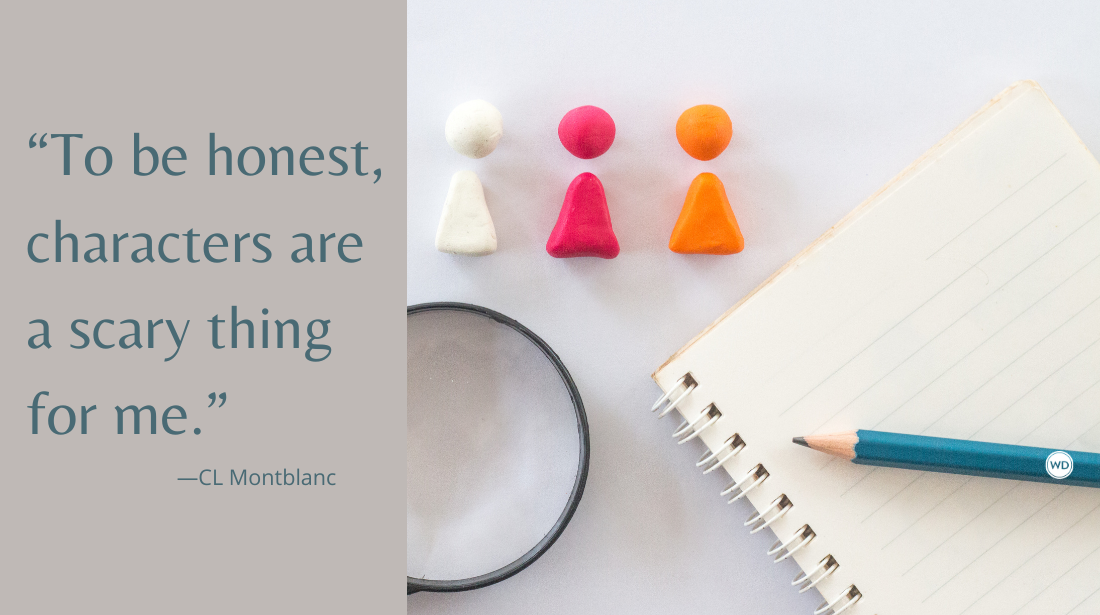Joanna Lowell: On Deception in Historical Romance
Author Joanna Lowell discusses the process of writing her new historical romance novel, Artfully Yours.
Joanna Lowell lives among the fig trees in North Carolina, where she teaches in the English department at Wake Forest University. When she’s not writing historical romance, she writes collections and novels as Joanna Ruocco. Those books include Dan, Another Governess / The Least Blacksmith, The Week, and Field Glass, coauthored with Joanna Howard. Find her on Facebook and Instagram.
In this post, Joanna discusses the process of writing her new historical romance novel, Artfully Yours, her advice for other writers, and more!
Name: Joanna Lowell
Literary agent: Tara Gelsomino
Book title: Artfully Yours
Publisher: Berkley / Penguin
Release date: February 21, 2023
Genre/category: Romance
Previous titles: The Duke Undone, The Runaway Duchess
Elevator pitch for the book: An art forger falls for the art critic determined to bring her to justice.
What prompted you to write this book?
Artfully Yours is part of a series that explores the Victorian art world. The first book, The Duke Undone, follows Lucy, a student at the Royal Academy of Art. She’s determined to make a name for herself as a painter and to advance female painters generally, at a time when women didn’t receive equal education and had difficulty selling their artworks.
With Artfully Yours, I wanted to write an artist heroine with a very different relationship to painting. Nina is as talented as Lucy, but she was trained by her brother to forge in the style of Old Masters. She exists in the art world’s shadow.
The 19th century has been called the golden age of forgery, and through Nina, I got to learn about the “art” of faking and imagine a scenario pitting a faker against a gatekeeper. That kernel—deceiver versus discerner—prompted the story.
How long did it take to go from idea to publication? And did the idea change during the process?
I sold The Duke Undone as part of a three-book deal, so I had a deadline for Artfully Yours, and a rough publication date, before I even came up with the idea for the book. That’s something brand new for me with this series, knowing a book will be published before I’ve written it.
It’s an energizing feeling but brings with it a whole new kind of pressure. I turned in the proposal for Artfully Yours in October of 2020, the manuscript a year later, and the book is coming out in February of 2023. The idea changed a lot during the writing process.
When I started writing, trying to get ahead of the deadline over the summer of 2020, I had a plot about radical politics layered on top of the art forgery plot. I was excited about the confluence of art and politics, and I couldn’t figure out why everything was so complicated and confusing.
My incredibly generous and brilliant agent, Tara Gelsomino, read the draft for me and diagnosed the problem—that I’d smushed two different books together. They were so intertwined, I ended up needing to start from scratch (scrapping around 200 pages). But focusing on just the art plot made the rest of the drafting go much faster.
Were there any surprises or learning moments in the publishing process for this title?
I always learn from development edits and seeing the art team’s covers is always a wonderful surprise. With this book, the cover was particularly surprising, because it departs from the silhouette style of the first two books. I felt so delighted by the perfect little illustration of Fritz, Nina’s mischievous marmoset.
For me, the publishing process is fun (and nerve-racking) because it’s even more collaborative than the writing, with dozens of people involved in helping you shape and polish and frame and package and position what you’ve done. You get a new sense of your book through other perspectives.
Were there any surprises in the writing process for this book?
I had that false start. But even after I’d streamlined things and the writing came more easily, I found myself surprised again and again by the character interactions. Writers are often asked if they’re plotters or pantsers, but probably most writers aren’t wholly one or the other.
I do plot out my books before I write, but loosely, with the understanding that what happens might change as I get to know the characters better. Artfully Yours required changing many of the beats I’d planned because I’d put my characters in a situation and realize, through the writing, that they’d behave differently than I’d expected when they existed as outlines.
Deception is a theme in the book, not only in regard to fake masterpieces. Nina and Alan are caught up in elaborate self-deceptions. They don’t always understand their own motivations, and as they build intimacy, they start to see each other more clearly than they can see themselves. I had to keep fine-tuning to capture that complexity.
What do you hope readers will get out of your book?
Working knowledge of how to forge a Rembrandt! Not really, but I do hope readers find the historical setting interesting and learn something about art forgery in the 19th century.
My goal in writing was more emotional. I love the optimism of romance, and that romance novels chart paths to joy, the kind of expansive, complex joy that Ross Gay writes about so beautifully. The kind of joy that can make peace with sorrow.
My main hope is that readers feel some of the joy that Nina and Alan feel as they develop self-acceptance and trust. And that they enjoy the reading experience!
If you could share one piece of advice with other writers, what would it be?
It’s useful to ask yourself why you write. Do you write to remember, to escape, to entertain yourself, to entertain your friends, to feel alive, to feel close to a character, to experience new things, to play with language, to see your name in print, to make money, to make yourself laugh, to continue a conversation, to change a conversation, to create alternate realities? There are more reasons than these, of course, and you can write for many reasons at the same time.
Digging into the why can help you identify what matters most to you about the process. And that can give you a clear-eyed perspective on the possible outcomes, so you understand what you want to do with your writing, and what you want your writing to do in the world.
Maybe getting that one story down on the page matters most, regardless of whoever else reads it. Maybe reaching readers who share your love of a particular genre matters most, and you’ll write with that audience in mind and focus on ways of getting your work out there. Writing doesn’t look the same for everyone, and neither does “success.”
The most common writing advice is keep doing it. That’s solid advice! It’s basically what I want to say here, only with the added nuance that you should keep writing on the terms that make sense for you individually.
Think about what those terms are, because if you don’t, you might find yourself writing on someone else’s terms without realizing it and trying to meet expectations that don’t align with your own goals or feed your own writerly fires.
Robert Lee Brewer is Senior Editor of Writer's Digest, which includes managing the content on WritersDigest.com and programming virtual conferences. He's the author of 40 Plot Twist Prompts for Writers: Writing Ideas for Bending Stories in New Directions, The Complete Guide of Poetic Forms: 100+ Poetic Form Definitions and Examples for Poets, Poem-a-Day: 365 Poetry Writing Prompts for a Year of Poeming, and more. Also, he's the editor of Writer's Market, Poet's Market, and Guide to Literary Agents. Follow him on Twitter @robertleebrewer.








